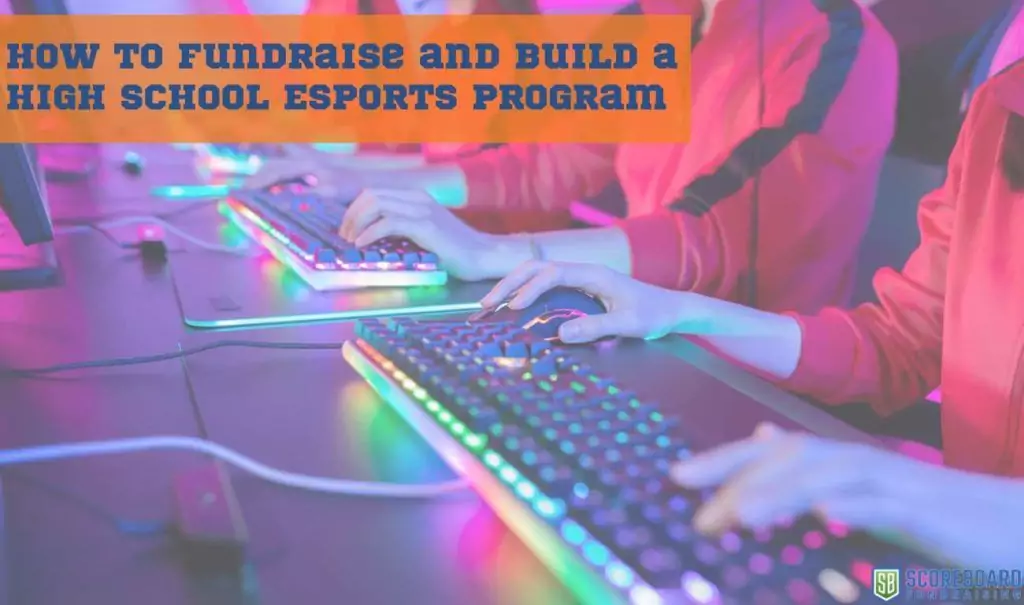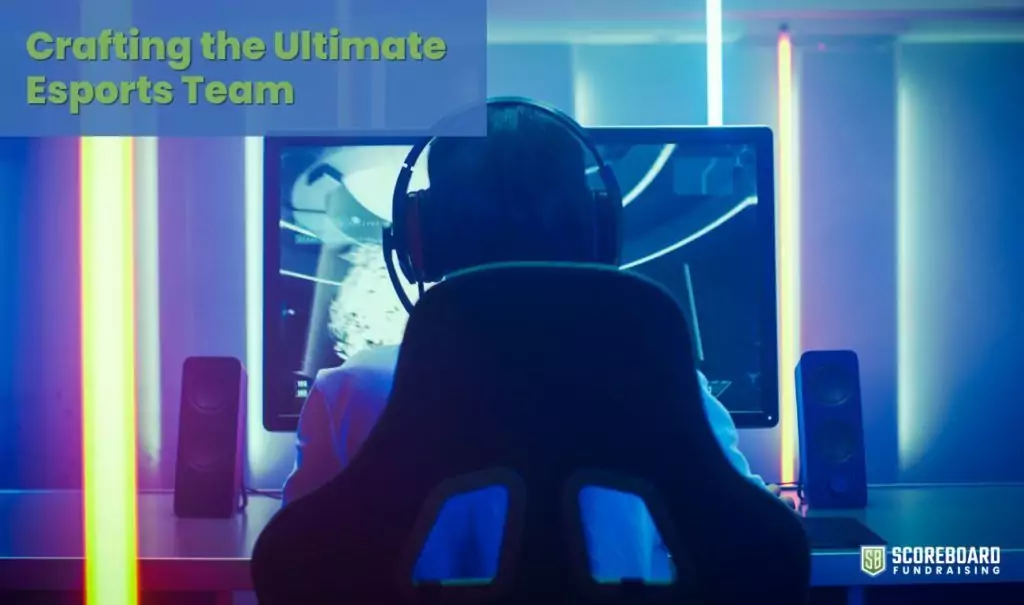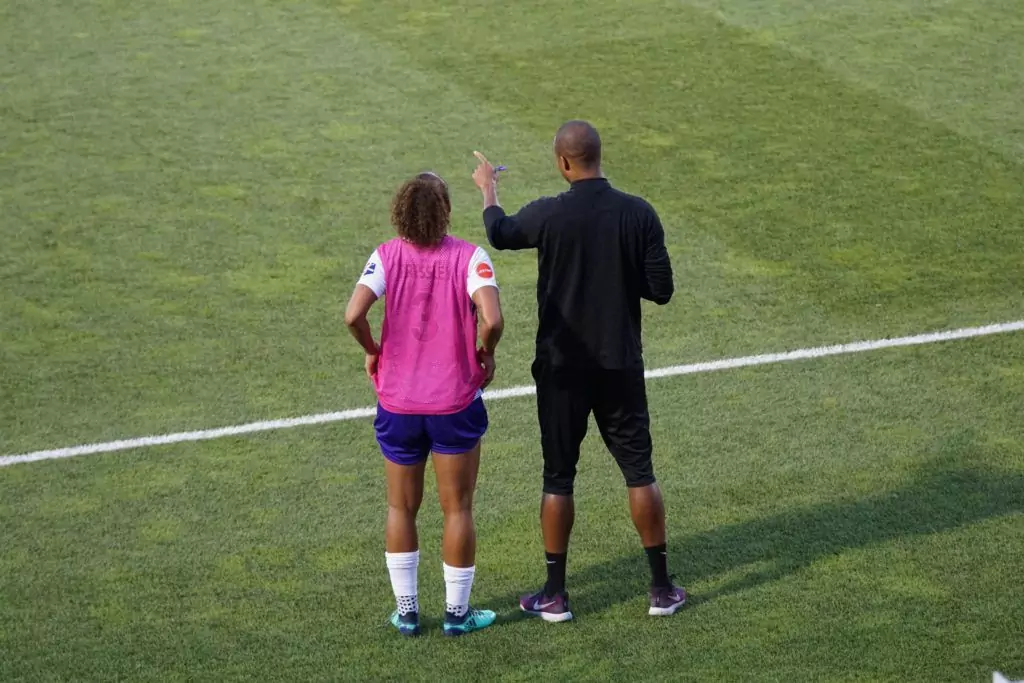Esports has gained popularity in the last several years. More and more schools and organizations are wanting to build an esports program. We’re here to give some tips on not only how to build a high school esports program but how to fundraise your team as well. Before we dive in, here’s a little esports background and history.
Esports Background
Esports, short for “electronic sports,” refers to competitive video gaming at a professional level. Esports tournaments and leagues feature professional players and teams competing against each other in popular video games, with events taking place both online and offline. These events can range from small, local competitions to large international tournaments with millions of dollars in prize money.
Popular esports games include titles such as League of Legends, Dota 2, Counter-Strike: Global Offensive, and Overwatch. The esports scene continues to grow, with more games, leagues, and tournaments being created and larger audiences tuning in to watch the competitions. Many colleges and universities are starting esports programs and teams and offering scholarships to team members. Some traditional sports teams, high schools, and organizations are getting involved in the esports scene as well.
Some of the most common esports formats are:
- 1v1 format, where players compete one-on-one
- 5v5 format, where teams of five players compete against each other
- Battle Royale, where a large number of players compete in a last-man-standing scenario.
Esports are also played on multiple platforms, not just on PC but also on console and mobile or handheld devices.
History of Esports
Esports have a relatively short history compared to traditional sports, but it has grown rapidly in recent years. The first known video game competition took place in 1972 at Stanford University, where students competed in a game of Space War. According to the book “High Score!: The Illustrated History of Electronic Games” by Rusel DeMaria and Johnny L. Wilson, this is considered as the first ever esports event.
However, it wasn’t until the late 1990s and early 2000s that esports began to take shape as a serious competitive activity. One of the earliest and most popular esports games was the first-person shooter (FPS) game Quake. The emergence of broadband internet and the ability to play online allowed for more organized and accessible competitions. According to a report by the market research firm Newzoo, the esports industry has grown rapidly in the last few years, reaching $1.1 billion in 2020 and projected to reach $1.79 billion by 2022.
The early 2000s saw the rise of multiplayer online battle arena (MOBA) games such as Defense of the Ancients (DotA) and League of Legends, which further popularized esports and helped establish it as a legitimate form of competitive entertainment. There are so many popular games that would work great with competitive esports.
In the 2010s, esports began to gain mainstream acceptance and recognition, with major companies and investors getting involved in the industry. This led to the creation of professional esports clubs, leagues, and teams, as well as the organization of large-scale international tournaments with substantial prize pool. A
The industry continues to grow, with more games, leagues, and tournaments being created, and larger audiences tuning in to watch the competitions. Esports are also recognized by government and Olympic committee, some countries are starting to recognize esports as a sport and it’s players as athletes, and some like South Korea already have a dedicated ministry for esports.
Building an Esports Team
Here’s some tips for starting an esports team or esports club:
- Define your goals: Determine what you want to achieve with your high school esports league, such as competing in specific tournaments or building a community around your team.
- Find players: Recruit the best players who have the skills, competitive edge, and dedication to compete at a high level. This can be done through online recruiting platforms, social media, or local gaming events. You’ll be able to find interested students and the right people for your team.
- Establish a team structure: Create a team hierarchy and establish roles and responsibilities for each member. This will help ensure that the new team runs smoothly and that everyone is on the same page.
- Get the right equipment: Make sure your players have the necessary hardware and software to compete at a high level. This may include gaming laptops or PCs, peripherals, and a reliable internet connection.
- Build a brand: Develop a team name, logo, and website to promote your team and build a fanbase.
- Find sponsors: Reach out to potential sponsors to fund your team. This may include companies in the gaming industry, or local businesses looking to engage with the esports community.
- Participate in tournaments: Participate in online and offline tournaments to build your team’s reputation and gain exposure.
- Network and build relationships: Connect with other teams, players, and industry professionals to learn from their experiences and potentially create opportunities for your team.
- Approach your high school and ask for your esports team to be added to the list of current school clubs.
- Check with your school’s athletic directors, staff member, or faculty member to make your professional esports team official.
Benefits of Having an Esports Program
There are so many benefits of creating an esports club, team, or program. Not only will you develop gaming experience with a particular game or games but you’re learning valuable skills like team building, strategic thinking, and communication skills. Being involved in any sport, club, or group is a great thing. More and more communities and school districts are realizing what a great opportunity having an esports team is for their students.
Fundraising for your Esports Program
Fundraising for any team or group can seem challenging. However, the good news is that Scoreboard makes fundraising easy. We have a team of great fundraising coaches to help you every step of the way. With a little planning, a great kick off, and some follow up, you can have a great fundraiser and earn a lot of money for your program. We’re here when you need us. Contact one of Scoreboard’s Coaches anytime for more information.
Scoreboard Fundraising offers several amazing fundraising options. There are additional ways you can raise money for your program as well. Here are some options:
- Sponsorships: Reach out to companies in the gaming industry or local businesses that are interested in supporting your esports organization. Offer them different sponsorship packages and work with them to create a mutually beneficial partnership.
- Donations: Scoreboard’s Fundraising app allows you to set up a fundraising campaign and share it with your friends, family, and community. Donation fundraisers are super easy and successful with our app.
- Tournaments and events: Host your own tournaments and events and charge an entry fee. This can be a great way to raise money and also build your team’s reputation.
- Merchandising: Create and sell team merchandise such as t-shirts, hoodies, and hats. This can be a great way to raise money and also promote your team.
- Online streaming: If your team has skilled players and a dedicated fanbase, you can monetize your team’s streams on platforms like Twitch or YouTube.
- Sponsored content: If your team has a large social media following, you can monetize your team’s content by partnering with brands or businesses to create sponsored content.
It’s a good idea to be creative and persistent when it comes to fundraising. Be prepared to reach out to many different sources and make a strong case for why they should support your team.
Are you thinking of getting into competitive gaming, being a professional player, or getting into esports leagues? Whether playing at the high school level or collegiate level, hopefully you found this information helpful. Reach out anytime with questions.
Before you go, check out a couple of our other blog posts:
12 Big Game Fundraising Ideas For Your Bowl Party
15+ Popcorn Recipes To Use Up All Of That Fundraiser Popcorn








